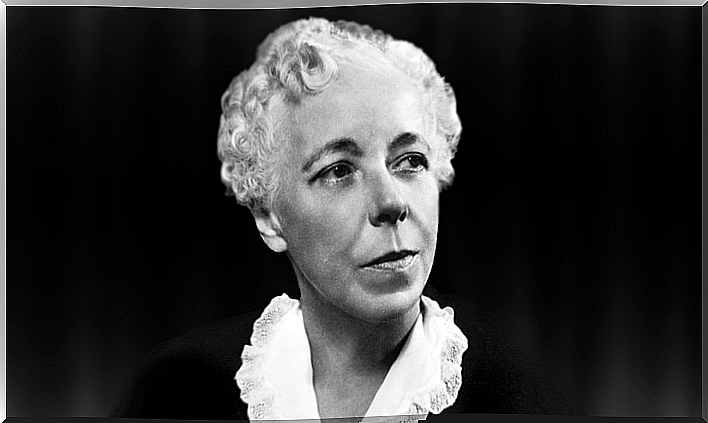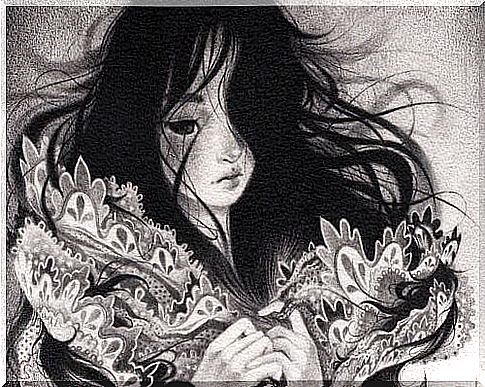10 Neurotic Needs, According To Karen Horney

Karen Horney was a German doctor and psychiatrist who developed interesting theses around neurotic needs. Unlike other theorists of his time, Horney established that anguish in human beings arises from the affective tensions that exist between the child and indifferent or severe parents.
Karen Horney herself lived through several episodes during her childhood that marked her deeply. Although there is evidence to the contrary, Horney felt a profound lack of affection from her father, which led her to take refuge in her mother’s love.
She went through some very confusing seasons during her life and this led her to psychoanalysis. Once that process was completed and after becoming a therapist herself, she worked out her theory. In it, he defines 10 patterns of neurotic needs, based on his clinical experience.
Roots of neurotic developments
According to Horney, there are several causes of neurotic developments (Vallejo Orellana, 2002):
- Give and receive affection.
- Issues around self-assessment and self-assertion.
- Suppression of aggressiveness. This would provoke a basic anguish that would represent the nucleus of all neurosis. It has three essential traits: helplessness, irrationality and the alert character that something is not going well within our Ego.
- Attempt to escape from anxiety through rationalizations, denials, drug addictions (drugs, travel, work, shopping), escapes, inhibitions, social isolation, idealizations of oneself, etc.
- The therapeutic objective was to raise the subject’s self-esteem and self-control, avoiding in the analysis those interpretations that hurt his ego.
The 10 neurotic needs
Karen Horney indicates that neurotic needs are born of needs that are initially completely healthy. However, the vicissitudes of life cause them to become exaggerated and distorted demands, which end up doing great harm to those who experience them. The 10 neurotic needs, according to Karen Horney, are as follows:

Neurotic need for affection
It is one of the neurotic needs that manifests itself as the idealization of love, in all areas. The person experiences a deep need for affection and resents even the smallest signs of indifference, detachment or rejection.
That is why he does everything in his power to please others and thus win their affection. They may be capable of making unbelievable sacrifices or actions, as long as the loved figures correspond to the affection that he or she lavishes on them.
Neurotic partner need
It is associated with neurotic needs for affection, but in this case it is directed exclusively at the partner. The person believes that love will save them, that it will allow them to have someone who gives their life meaning and who will take charge of everything that is wrong. In this way, the anguish you feel will be greatly reduced.
Once again, the neurotic idealizes love and endows it with properties that go beyond reality. It is common for you to get used to the idea that your problem is not that disproportionate expectation regarding the love of a couple, but that you have not managed to find the ideal partner to reach fullness. And you can spend your whole life looking for it.
Neurotic need for restraint
Whoever experiences this neurotic need imposes the mandate to place great limits on their desires. He thinks that he should ask for little, settle for little and not aspire to much in life. It is a kind of defense mechanism against frustration. His watchword is: If you don’t want to, you will never feel frustrated.

Neurotic need for power
It is expressed as a deep desire to control others, to compete and to be the one who always has the last word. In this type of people there is a great rejection and misunderstanding in the face of the weakness of others, as well as a great exaltation of behaviors that show strength or ability.
Disrespect for others occurs. Withdrawals are also observed due to fear of failure and a tendency to give up desires. There is great anguish to dominate others.
Neurotic urge to exploit others
It corresponds to what we commonly know as self-centered people. They think that others are there to be used by him. The others interest you only as instruments of your own wants and needs. They want to be heard, but they don’t listen. They want to be loved, but they don’t love. And a long etcetera.
There is also a deep fear of being exploited. It evaluates others only as tools for their own benefit, however, make sure that others do not try to use or exploit it.
Neurotic need for recognition
This need leads a person to organize their whole life around “what will others say” or “what will they say”. You irrationally worry about your appearance, to the point where you can get into trouble for, for example, having branded clothes, or the best car. He is terrified of being different or “out of the herd”, because he does not tolerate criticism.
Self-evaluation depends on the opinion of others and social acceptance. The subject values others depending solely and exclusively on their prestige.
Neurotic need for admiration
It is similar to the need for recognition, but in this case the emphasis is not on being approved by others, but rather demands that others exalt you. They want to be the first to give the answer, the one who collaborates the most, the one who best complies. But they do not do it out of a healthy conviction, but hoping that those around him will build a small throne for him to reign.
Neurotic need for achievement
For those who are haunted and obsessed with achievement, competition is the natural state of life, and mistake or failure is never on the agenda. For them it only counts to be number one in everything and they completely demerit those who do not give them first place. His thing is to strut about how magnificent they are.

Neurotic need for self-sufficiency
It is the need to take independence to extremes. Here it is no longer about achieving the autonomy that we all must achieve, but about not needing others even when they really need them. They don’t want help, because they fear depending.
Neurotic need for perfection
It gives rise to the typical “perfecticos”, that is, those people who cannot tolerate a gram of dust on the carpet. Faced with their own or someone else’s mistake, they react as if the world were collapsing. They do not have the ability to learn from mistakes, much less to laugh at themselves when they fail.
Images courtesy of Diego Fernández








